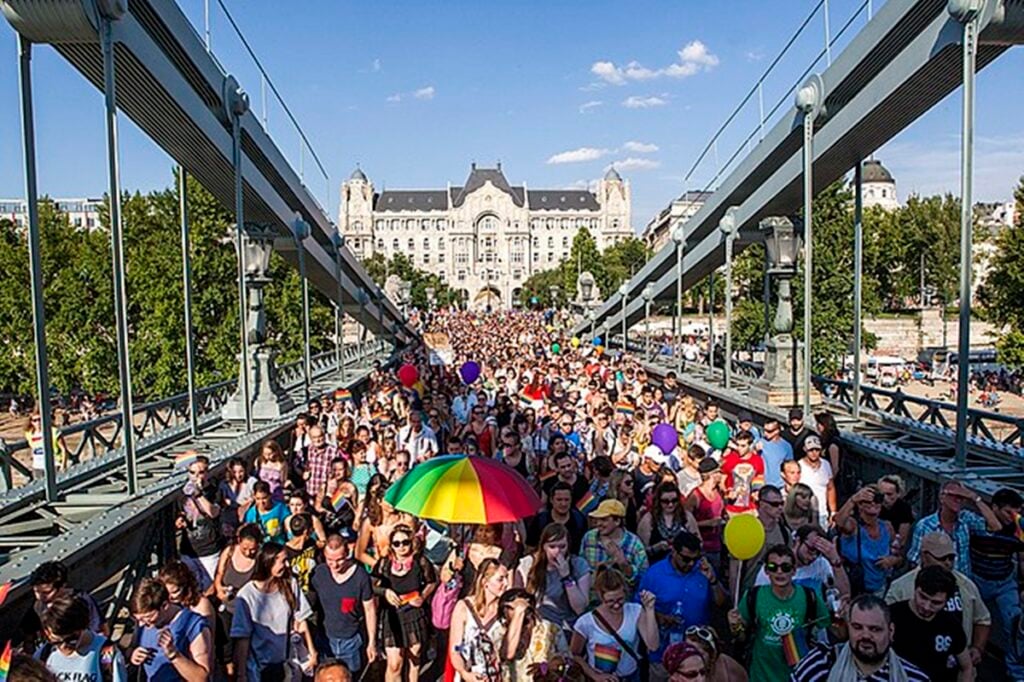
Protesting voices to the Hungarian government's continuing discrimination against the LGBTQ community at Budapest Pride took to the streets of the nation's capital in record numbers Saturday.
Thousands of LGBTQ Hungarians and allies donned their rainbow best as they marched through downtown Budapest in one of the largest demonstrations against Prime Minister Viktor Orban and his administration's moves to criminalize the nation's LGBTQ community.
The most recent example of Orban's anti-LGBTQ legislation is a law that outlaws the display of content depicting homosexuality or gender transition to minors. Critics of the law say it conflates homosexuality with pedophila and prevents LGBTQ youth from accessing affirming information regarding sexual orientation and gender. The law has also been derided as a partisan rallying point meant to conjure conservative voters ahead of elections in 2022.
“A lot of LGBTQ people are afraid and don't feel like they have a place or a future in this country anymore,” Jojo Majercsik, Budapest Pride spokesperson, told the Associated Press. “It was really difficult for me to come out, and the only thing that made it easier was that I found a book of stories on LGBT topics … that's how I learned that what I'm feeling is something real, that I'm not different.” said Pride attendee Anasztazia Orosz added.
“A lot of LGBTQ people are afraid and don't feel like they have a place or a future in this country anymore,”
The Budapest Pride demonstration came as the fight against Orban and the Hungarian government grew more contentious beyond Hungarian borders. The European Union's Executive Commission filed two legal proceedings against the Hungarian government ahead of the march last week focused on its actions against the LGBTQ community.
The EU also proposed delaying a ruling on the approval of Hungary's $8.4 billion funding request for coronavirus recovery. According to German news outlet Deutsche Welle, Orban threatened to turn down coronavirus aid from the EU if it requires him to alter his anti-LGBTQ legislation.
Orban announced a national referendum meant to show public support for the new law on Wednesday, just days before Budapest Pride attendees took to the streets. The referendum asks citizens if topics relating to sexual orientation should be introduced to students in schools and if gender reassignment should be “promoted or depicted” to children. Both questions were deemed “openly transphobic and homophobic” by Majercsik.
This environment is why the record number of marchers joining the Budapest Pride celebration this year holds special significance. “Now there are real stakes … our situation is pretty bad,” said Pride marcher Mira Nagy.
Nagy, like many other LGBTQ Hungarians, are contemplating leaving their home nation if the situation worsens. With Orban's potential reelection looming in 2022, that potential reality is becoming more concrete. “I've heard from a lot of LGBT people that are planning to leave the country, and won't even wait for next year's elections,” said Majercsik. “There will be many others for whom the results of the elections will determine whether they stay or leave.”
One of Orban's key challengers, Budapest mayor Gergely Karacsony, was in attendance for the Budapest Pride march.



